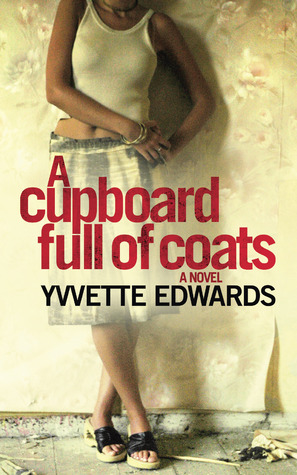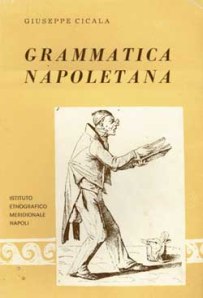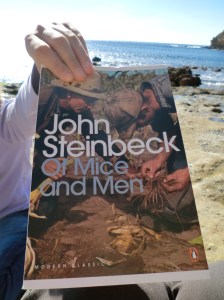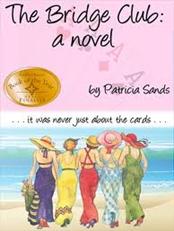Literary fiction that manages to be utterly compelling, thought provoking, intense and revelatory. Set in 1970’s East London. It was long listed for the Booker Prize in 2011 and nominated for The Hurston-Wright Legacy Award in 2013.
I read A Cupboard Full of Coats during October with Didi’s Read Soul Lit ReadAlong group on Goodreads.
A Visitation
 It is 14 years since Jinx’s mother died and the knock on her door by a friend of her mother’s she hasn’t seen since then, initiates this weekend like no other, which will bring back all the emotion, rage, resentment, passion and sorrow that has been pushed down so deep for years.
It is 14 years since Jinx’s mother died and the knock on her door by a friend of her mother’s she hasn’t seen since then, initiates this weekend like no other, which will bring back all the emotion, rage, resentment, passion and sorrow that has been pushed down so deep for years.
It is an intense and provocative beginning that reveals just enough to pique interest and make the reader begin to ask questions, that we hope the story will reveal. Who was responsible for what happened back then and what part did each of them play?
When Lemon arrives at her door, his first words are “he’s out”.
There were changes around his face; the crow’s feet at the corner of his eyes were wider fanned, the bags beneath them full and heavy, and his old skin bore new lines. His eyes were red-rimmed, the whites yellowed, the expression intense as he looked at me, already asking questions, talking of things that should be whispered even when alone, and it was me that looked away, looked down, wondering if my own eyes were as eloquent as his, afraid that they might be speaking volumes, scared of the things they might have already said.
Jinx’s five year old son Ben arrives for the weekend, a shared custody arrangement; it goes badly, she is reactive, he is upset.
Effect of Unconscious Trauma
There is a sense of suppressed trauma that impacts her ability to mother. The son tries to reach out to her and is unable to connect. Her perceptions and behaviour are inexplicable. When she views her son interacting with Lemon, she can’t grasp the ease they demonstrate.
I was in shock. I had never heard my son like this before. I had simply thought he was a morose child, because morose was how he always was with me. I had never seen this side of him, this laughing chattiness, the non-stop outpouring of everything going on in his life, the pleasure he took from his accomplishments, such as they were. And I felt hurt. Really hurt. Wounded to the core just listening to how natural and happy he could be with a virtual stranger, when I had been trying for nearly five years to have a relationship with him and had come up against brick after brick after brick.
Throughout the course of the weekend, we learn about the lives of Jinx and her mother, widowed at a young age having married a much older man.
The one thing my mother always said about Mr Jackson was that he was a decent man, that he took proper care of things, including this mortgage-free house that he left to her, which she then left to me when I was sixteen and she was dead. Decent enough to ask no more of her than that she occupy it and dedicate her life to raising me, forsaking all other men till I had grown up. ‘Grown up’ she interpreted to mean when I was sixteen. It was ironic that I actually had grown up then. Sixteen and overnight my childhood was over.
Will We Ever Understand Domestic Violence?

Photo by Sourav Mishra on Pexels.com
We learn about the beginning of her mum’s relationship with Berris. Of his moving in and taking over, Jinx’s growing resentment and jealousy. His volatile nature and her mother’s acceptance of it, of those coats he gives her as apologies.
There are many different kinds of rain, and England is famous for all of them. There are showers that start with a light drizzle, then build up to a steady pour. Then there’s rain that begins drip, drip, gets heavy, then stops then starts and stops and starts again. Then there’s sudden rain that falls quickly when it’s sunny, like its only ambition is to make a rainbow and once it’s done that, it stops. If I had to describe Berris as rain, he was none of those, and the words ‘You won’t even know he’s here’ turned out to be the understatement of the year.
Friendship

Photo by Mary Taylor on Pexels.com
When the narrative moves back to her sixteenth year, Jinx is her final year at school, sitting O levels. We meet her best friend Sam and observe that she too is going through a transition, two girls that used to do everything together, begin to diverge.
Their relationship begins to change when after a few days of absence the teacher no longer calls Sam’s name in roll call.
It’s like the beginning of the application of a moral code, something stronger than friendship, when womanhood approaches and white lies creep in between friends, as they navigate the shifting status on that precipice between girl and woman, when boys and men begin to enter their lives.
Narrative Structure
The narrative is structured in alternate chapters of the past and the present, so as the weekend progresses, with Lemon’s visit, there is a gradual thawing out and opening up, on both their parts, as Jinx listens and begins to open up, remembering, recalling, each filling in the gaps of the other’s perception of what happened around the time of her mother’s death.
The past concentrates on those month’s leading up to her mother’s death, building suspense as the story closes in on that final day, that until now, no one really had the complete picture of what occurred.
Reading it, we ask ourselves, can healing take place over a weekend? What will Lemon’s visit reveal? What is Jinx hiding?
A Cupboard Full of Coats explores relationships, jealousy, independence, co-dependence and the transitions that happen as a girl becomes a woman, a mother a lover and the vulnerability of women.
The atmosphere she creates, the intensity, the adept characterisation, the confessions and revelations make for a compelling read. Though I read it over a week when I was busy, each time I picked it up, it gripped me and I highlighted thought provoking passages all the way through. The conversation the group had about the book was dynamic, there was a lot of outrage expressed against the characters, the live discussion was a rewarding way to end the book.
Highly Recommended. I’ll definitely be reading her next novel and hope to see more from this talented British author.
Yvvette Edwards, Author
 Yvvette Edwards is a British East Londoner of Montserratian origin and author of two novels, A Cupboard Full of Coats and The Mother. Her short stories have been published in anthologies including New Daughters of Africa, and broadcast on radio.
Yvvette Edwards is a British East Londoner of Montserratian origin and author of two novels, A Cupboard Full of Coats and The Mother. Her short stories have been published in anthologies including New Daughters of Africa, and broadcast on radio.
Her work has been nominated for a number of literary awards including the Booker Prize. She is particularly interested in writing that challenges the single narrative, giving voice to characters who are absent or under-represented in contemporary fiction.
She was a judge for the inaugural Jhalak Prize for Writers of Colour and the George Floyd Short Story Competition. She is a Fellow of the Royal Society of Literature.
Further Information
OneWorld Publications: Yvvette Edwards discusses A Cupboard Full of Coats
The Independent: A Matter of Black and White




 1865, in the city of Bath, a young woman renowned for her nursing skills is convinced another destiny will one day present itself. When she finds herself torn between a dangerous affair and the promise of a conventional marriage to an apparently respectable doctor, her desires lead her towards a future she never imagined.
1865, in the city of Bath, a young woman renowned for her nursing skills is convinced another destiny will one day present itself. When she finds herself torn between a dangerous affair and the promise of a conventional marriage to an apparently respectable doctor, her desires lead her towards a future she never imagined. So used to her self imposed isolation and predictable life is she, that she seems shocked when a new employee Raymond from IT, whom she calls when her computer freezes one morning, initiates conversation with her outside the office, speaking to her as if she might be just like the others.
So used to her self imposed isolation and predictable life is she, that she seems shocked when a new employee Raymond from IT, whom she calls when her computer freezes one morning, initiates conversation with her outside the office, speaking to her as if she might be just like the others. I did find the character of Eleanor a little difficult to believe in, the long years of solitude followed by a relatively sudden transformation seem to occur too easily and quickly, however if I were to suspend judgement on the authenticity of the character and the speed of her life change, which wasn’t hard to do, then it becomes a kind of coming-of-age novel about a young woman overcoming a traumatic past and demonstrates (a little too conveniently) the healing that can come from genuine friendship and being part of a family and community and a functional workplace (if there is such a thing).
I did find the character of Eleanor a little difficult to believe in, the long years of solitude followed by a relatively sudden transformation seem to occur too easily and quickly, however if I were to suspend judgement on the authenticity of the character and the speed of her life change, which wasn’t hard to do, then it becomes a kind of coming-of-age novel about a young woman overcoming a traumatic past and demonstrates (a little too conveniently) the healing that can come from genuine friendship and being part of a family and community and a functional workplace (if there is such a thing). Elsie is Florence’s (Flo) best friend. The book is all about Flo and begins with her lying on the floor having had a fall, she’s waiting for someone to arrive, she lives in a self-contained apartment within a retirement village. She imagines who might come first, what they might say, the ambulance ride to the hospital.
Elsie is Florence’s (Flo) best friend. The book is all about Flo and begins with her lying on the floor having had a fall, she’s waiting for someone to arrive, she lives in a self-contained apartment within a retirement village. She imagines who might come first, what they might say, the ambulance ride to the hospital. She portrays these characters with integrity and humour, I had the feeling often as I read that I was watching these scenes happen, so vividly are they drawn, so clear the voices and intentions of the characters. She creates a mystery that intrigues the reader, making me not want to put the book down, desperate to know what was going to happen next and always with that air of doubt, about what is real and what might be the confusion of an elderly woman. But never mind that, for as we read, we are right there with Flo, Jack and Elsie, moving on from one clue to the next, following them in their devilish escapades and hoping that all will be well in the end.
She portrays these characters with integrity and humour, I had the feeling often as I read that I was watching these scenes happen, so vividly are they drawn, so clear the voices and intentions of the characters. She creates a mystery that intrigues the reader, making me not want to put the book down, desperate to know what was going to happen next and always with that air of doubt, about what is real and what might be the confusion of an elderly woman. But never mind that, for as we read, we are right there with Flo, Jack and Elsie, moving on from one clue to the next, following them in their devilish escapades and hoping that all will be well in the end.











 Reading Patricia Sand’s The Bridge Club feels a little like taking a long road trip with a friend, she drives as we listen to her narrate this story of eight female characters, a condensed version of their lives, her voice like the gentle thrum of the engine, lulling us at times into a companionable silence, we listen and observe the passing landscape of years, immersing into these lives as if they were our own.
Reading Patricia Sand’s The Bridge Club feels a little like taking a long road trip with a friend, she drives as we listen to her narrate this story of eight female characters, a condensed version of their lives, her voice like the gentle thrum of the engine, lulling us at times into a companionable silence, we listen and observe the passing landscape of years, immersing into these lives as if they were our own. support of them all and often some kind of intervention as well.
support of them all and often some kind of intervention as well.